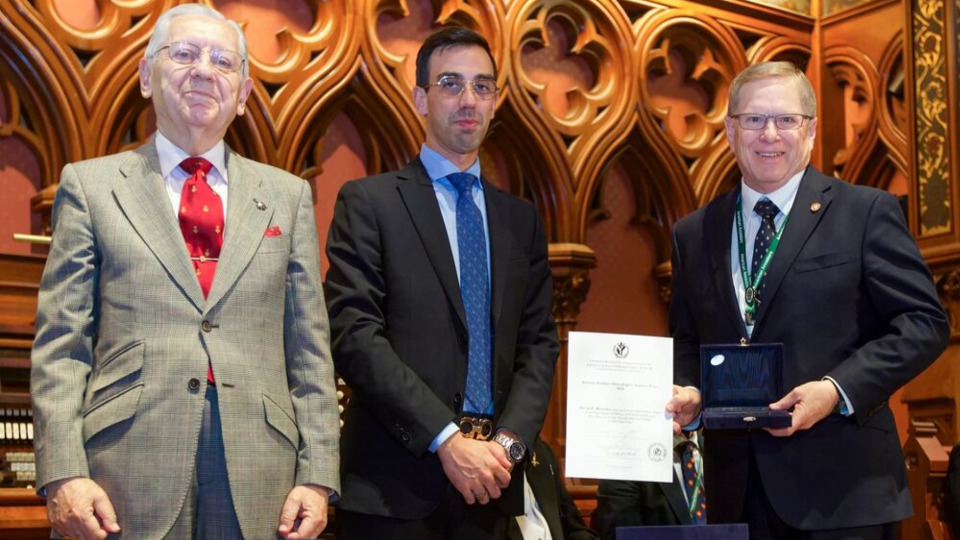
FamilySearch award
Manuel Pardo de Vera Y Díaz, left, Giorgio Cuneo, center, and David Rencher, right, stand together during the 36th International Congress of Genealogical and Heraldic Sciences in Boston, Masschusetts, on September 27, 2024. Photo provided by FamilySearch, courtesy of Church News. All rights reserved.This story appears here courtesy of TheChurchNews.com. It is not for use by other media.
By Kaitlyn Bancroft, Church News
David Rencher, FamilySearch International’s chief genealogical officer, recently received the Italian Heraldic Genealogical Institute’s Lifetime Achievement Award at the 36th International Congress of Genealogical and Heraldic Sciences, FamilySearch announced.
The Italian Heraldic Genealogical Institute’s award is the highest distinction offered by the organization, and recognizes individuals for their “extraordinary, valuable and selfless” documentary work, the announcement states.
The award ceremony was September 27 in Boston, Massachusetts, marking the first time the International Congress of Genealogical and Heraldic Sciences has been in the U.S. Pier Felice degli Uberti, president of the Istituto Araldico Genealogico Italiano (Italian Heraldic Genealogical Institute) presented the award.
Rencher said he was “humbled and honored” by the unexpected award.
“I appreciate all the great work the [International Congress of Genealogical and Heraldic Sciences] society does and the window it gives us into a field [of heraldry] with which many genealogists are unfamiliar,” he said. “And they always produce the highest quality content.”
This year’s theme was “Origins, Journeys, Destinations.” Content focused on how heritage and cultural identities are often shaped by the journeys people make, from overseas migrations to the formation of modern metropolises. It also focused on heraldry: the study of the design, ranks and meanings of coats of arms.
“Genealogy can benefit from and add to the family groups that heraldic symbols represent,” Rencher said. “Heraldry was very much a part of European history, and even earlier in other areas of the world. Symbols showed rank and honor.”
He added that heraldry exists in many forms, such as shields, flags, royal emblems, family crests and the tartans of Scottish clans.
People today don’t often think about heraldry in the U.S., he continued, but it still exists. For instance, nearly all cities, towns and states have some sort of heraldic shield or coat of arms to symbolize their identity. Collegiate coats of arms are embedded in Ivy League universities such as Yale and Harvard, but many other schools also have similar symbols, he said.
For those interested in researching heraldry and early family connections originating in the medieval period, the FamilySearch Library in Salt Lake City has a medieval collection. The FamilySearch Wiki is another resource.
Copyright 2024 Deseret News Publishing Company.